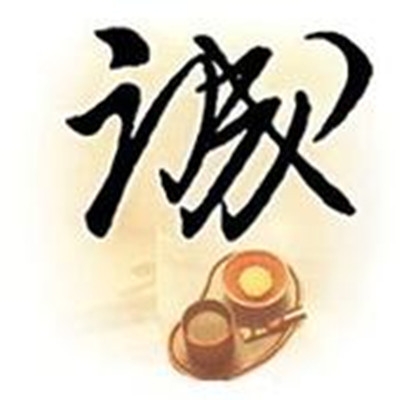科學(xué)技術(shù)
The psychology of morality
道德心理學(xué)
Time to be honest
時(shí)間讓人誠實(shí)
A simple experiment suggests a way to encourage truthfulness
由簡單實(shí)驗(yàn)總結(jié)出讓人誠實(shí)的方法
IS SIN original?
難道人性本惡?
That is the question addressed by Shaul Shalvi, a psychologist at the University of Amsterdam, in a paper just published in Psychological Science.
阿姆斯特丹大學(xué)心理學(xué)家Shaul Shalvi在《心理科學(xué)》期刊上剛發(fā)表的一篇論文談到了這個(gè)問題。
Dr Shalvi and his colleagues, Ori Eldar and Yoella Bereby-Meyer of Ben-Gurion University in Israel, wanted to know if the impulse to cheat is something that grows or diminishes when the potential cheater has time for reflection on his actions.
Shalvi博士和他的來自以色列Ben-Gurion大學(xué)的同事們 Ori Eldar 和 Yoella Bereby-Meye希望知道當(dāng)一個(gè)想要撒謊的人如果有時(shí)間對他的行為思考時(shí),他們說謊的動機(jī)是增加還是降低。
Is cheating, in other words, instinctive or calculating?
換句話說,撒謊,是一種應(yīng)激本能還是經(jīng)過慢慢算計(jì)的?
 Appropriately, the researchers’ apparatus for their experiment was that icon of sinful activity, the gambling die.
Appropriately, the researchers’ apparatus for their experiment was that icon of sinful activity, the gambling die.
研究人員為他們的實(shí)驗(yàn)提供了一個(gè)很合適的實(shí)驗(yàn)工具,賭博用的骰子—本身就象征著罪惡的活動。
They wanted to find out whether people were more likely to lie about the result of a die roll when asked that result immediately, or when given time to think.
他們想看看人們到底是在什么情況下更容易撒謊,是在需要立即報(bào)告骰子點(diǎn)數(shù)的情況下還是有足夠的時(shí)間的情況下。
To carry out their experiment, Dr Shalvi, Dr Eldar and Dr Bereby-Meyer gave each of 76 volunteers a six-sided die and a cup.
為了進(jìn)行實(shí)驗(yàn),Ben-Gurion、 Ori Eldar 和 Yoella Bereby-Meye博士為76個(gè)志愿參與實(shí)驗(yàn)的人每人一個(gè)六面的骰子和一個(gè)杯子。
Participants were told that a number of them, chosen at random, would earn ten shekels for each pip of the numeral they rolled on the die.
他們告訴參與實(shí)驗(yàn)的人,他們隨意搖出的骰子的點(diǎn)數(shù),每一點(diǎn)可獲得10謝克爾。
They were then instructed to shake their cups, check the outcome of the rolled die and remember this roll.
然后參與實(shí)驗(yàn)的人按照規(guī)定搖骰子,檢查這一輪他們搖出的點(diǎn)數(shù)并且記住它。
Next, they were asked to roll the die two more times, to satisfy themselves that it was not loaded, and, that done, to enter the result of the first roll on a computer terminal.
他們按照要求再擲兩次色子,好讓他們自己相信沒人對這色子動過手腳,這樣檢查完沒問題之后,他們就把第一次擲出的數(shù)字輸入到電腦終端中去。
Half of the participants were told to complete this procedure within 20 seconds while the others were given no time limit.
他要求一半的參與者在20s之內(nèi)完成,而另一半則沒有時(shí)間限制。
The researchers had no way of knowing what numbers participants actually rolled, of course.
當(dāng)然研究人員無從知曉參與者搖出的真實(shí)數(shù)字。
But they knew, statistically, that the average roll, if people reported honestly, should have been 3.5.
但是從統(tǒng)計(jì)學(xué)理論上來講,如果人們誠實(shí)的話,那么搖出的點(diǎn)數(shù)的平均數(shù)字應(yīng)該是3.5,
This gave them a baseline from which to calculate participants’ honesty.
這個(gè)原理為他們提供了判斷參與實(shí)驗(yàn)的人是否誠實(shí)的基線。
Those forced to enter their results within 20 seconds, the researchers found, reported a mean roll of 4.6.
那些被要求20秒內(nèi)輸入他們結(jié)果的人所報(bào)告的結(jié)果的平均數(shù)是4.6,
Those who were not under any time pressure reported a mean roll of 3.9.
而沒有時(shí)間限制的人所報(bào)告的平均點(diǎn)數(shù)是3.9。所以,
Both groups lied, then. But those who had had more time for reflection lied less.
兩個(gè)組的人都撒謊了,但有時(shí)間考慮的那一半人撒謊的少一些。
A second experiment confirmed this result.
第二個(gè)實(shí)驗(yàn)也證實(shí)了這個(gè)結(jié)果。
A different bunch of volunteers were asked to roll the die just once.
另一群志愿者只允許搖一次篩子,與
Again, half were put under time pressure and, since there were no additional rolls to make, the restriction was changed from 20 seconds to eight.
上次相同的是一半人必須在8秒內(nèi)輸入結(jié)果,而另一半則沒有做時(shí)間限制,
The others were allowed to consider the matter for as long as they wished.
他們想思考多長時(shí)間都行。
In this case the first half reported an average roll of 4.4.
在這次試驗(yàn)中,前一半人輸入的平均數(shù)字是4.4。
Those given no time limit reported an average of 3.4.
有充足時(shí)間思考的另一半人輸入結(jié)果的平均數(shù)字是3.4.換句話說,
The second lot, in other words, actually told the truth.
這一半的人大部分都說了實(shí)話。
The conclusion, therefore, at least in the matter of cheating at dice, is that sin is indeed original.
因此,至少在骰子點(diǎn)數(shù)這個(gè)問題上,實(shí)驗(yàn)的結(jié)論是人生來的確是罪惡的。
Without time for reflection, people will default to the mode labelled cheat.
如果沒有思考時(shí)間,人們會被預(yù)設(shè)為貼有欺騙標(biāo)簽的模式。
Given such time, however, they will often do the right thing.
然而如果給予充足的時(shí)間思考,他們通常會選擇做正確的事情。
If you want someone to be honest, then, do not press him too hard for an immediate decision.
所以,如果你希望一個(gè)誠實(shí),千萬別為了一個(gè)立即的決定而給他太大壓力。
 Appropriately, the researchers’ apparatus for their experiment was that icon of sinful activity, the gambling die.
Appropriately, the researchers’ apparatus for their experiment was that icon of sinful activity, the gambling die.
 Appropriately, the researchers’ apparatus for their experiment was that icon of sinful activity, the gambling die.
Appropriately, the researchers’ apparatus for their experiment was that icon of sinful activity, the gambling die.